Our History curriculum has been designed to build on our children’s cultural capital, through our curriculum drivers, children’s interests and the requirements of the National curriculum to empower our children to develop a curiosity, passion and an enthusiasm for acquiring historical knowledge and the historical vocabulary needed to articulate an understanding of History.
Our History curriculum provides a coherent, structured, academic curriculum that leads to sustained mastery for all and a greater depth of understanding for those who are capable. It sets out a clear list of the breadth of topics that will be covered for each year group which ensures each teacher has clarity as to what to cover, the threshold concepts children should understand, criteria for progression within the threshold concepts and criteria for depth of understanding.
Our Key History concepts: investigate and interpret the past, build an overview of world history and understand chronology are organised into knowledge categories and explored through our breadth of historical topics therefore ensuring clear intra-curricula links so that children are able to return to the same concepts over and over so they gradually build a secure historical understanding.
Our History milestones define the standards for the threshold concepts. In EYFS we follow the new statutory framework and expect them to achieve the ELG for Understanding the World. We expect children in year 1 of the milestone to develop a basic understanding of the concepts and an advancing or deep understanding in year 2 of the milestone.
Our teaching of history has been interleaved on a two weekly cycle (in key stage 1) with our teaching of History as cognitive science research identifies that interleaving and the frequent retrieval of previously learnt content aids long term retention. Our historical topics are revisited in both years, in each key stage so they are built upon across the key stage to ensure progression and enable children to build a history schema and move their learning from working in to long term memory.
History activities are planned for within our continuous provision which enables application and replication of historical knowledge taught in different contexts, with pertinent cross curricula links, offering a more open ended approach to learning which challenges and empowers children to demonstrate their learning in imaginative and different ways. It also builds on previously taught knowledge, both day-to-day and across year groups. It supports the needs of the less knowledgeable children but challenges those more knowledgeable children. In EYFS we revisit our learning termly through stories and own experiences.
The impact of our curriculum is that by the end of each milestone, the vast majority of children have sustained mastery of the content, that is, they remember it all and are fluent in it; some children have a greater depth of understanding. We track carefully to ensure children are on track to reach the expectations of our curriculum through our Proof of progress, (POP), tasks. POP tasks are categorised into 3 cognitive domains; basic, advancing and deep.
Possibilities:
We aim to develop an awareness of the past through stories, events and the lives of significant individuals in the past who have contributed to national and international achievements. Where possible visits from specialist in their field will influence a range of career paths they can take in the world of history.
Environment:
As part of learning in their environment we will focus on historical events, people and places in their locality and significant individuals in the past. Through visits and experiences children will understand the ways in which they find out about the past and identify different ways it is represented.
Diversity:
When looking at significant events and people from the past careful consideration has been made to include a diverse range of historical events and people.
Whole school overview
Year 1 - In Class Learning - 2023-2024
Our Key stage 1 children enjoyed a wonderful performance today by a special theatre company all about The Great Fire of London which they have been learning about in History. The performance involved lots of singing and dancing which the children loved. At the end they all took part in drawing a fantastic picture of what London looked like.
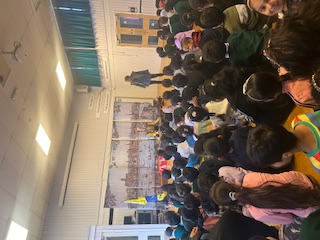

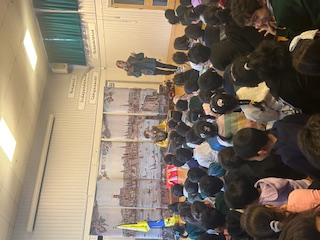

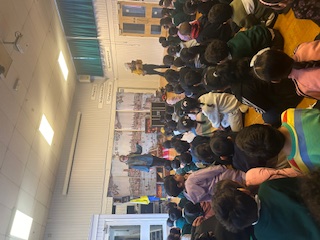



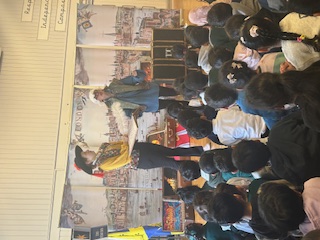

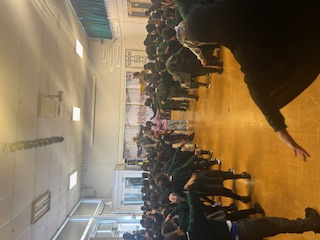

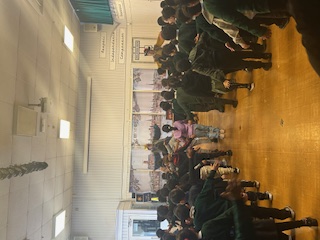

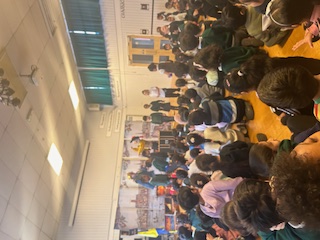

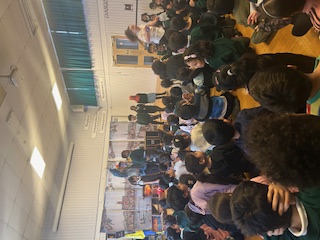

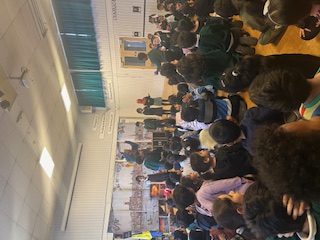

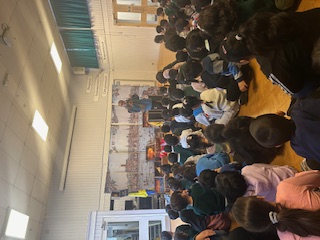

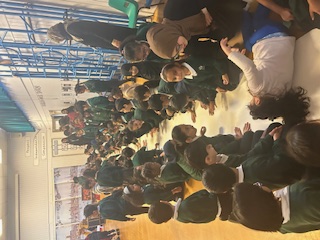



Year 2 - In Class Learning - 2023-2024
In history we have been learning about King Richard the third. We looked at and acted out the Battle of Bosworth and how that Battle of Bosworth impacted King Richards body being found in Leicester! We then went on to compare the differences in weapons , transport and espionage between 1485 and 2023.
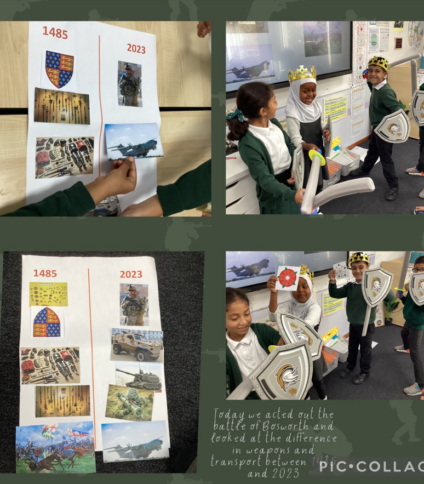

In Class Learning - 2022-23
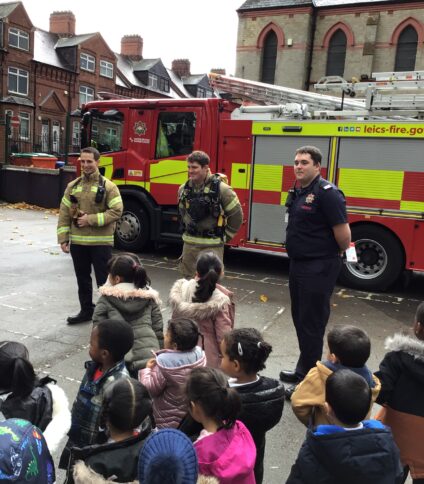

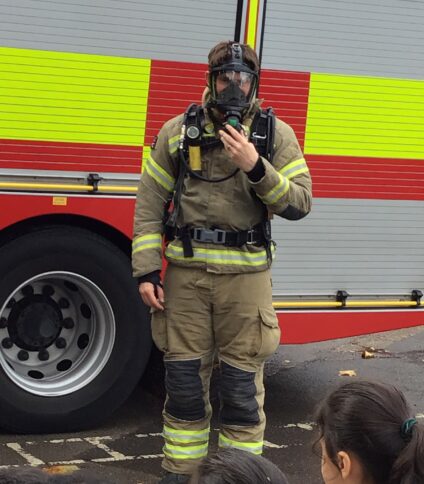

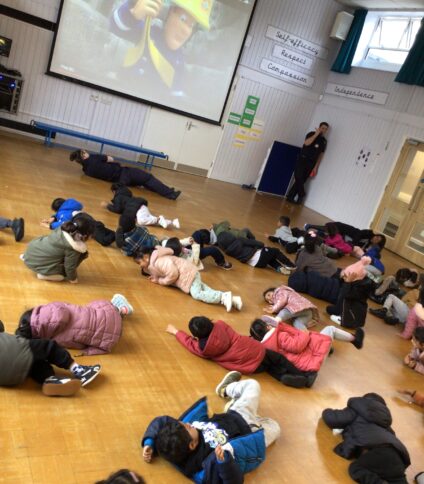

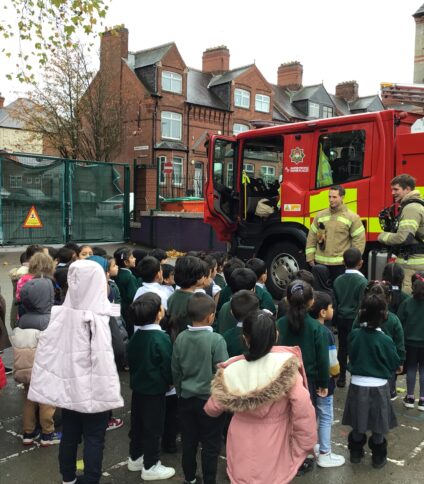

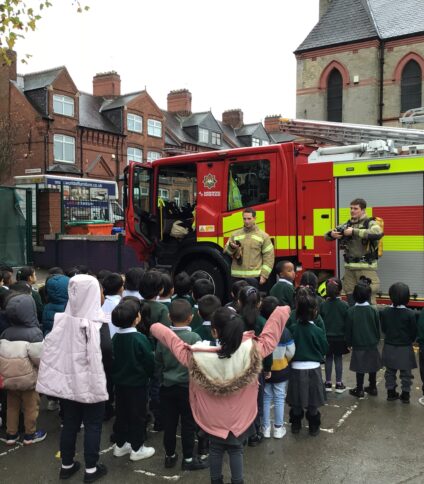

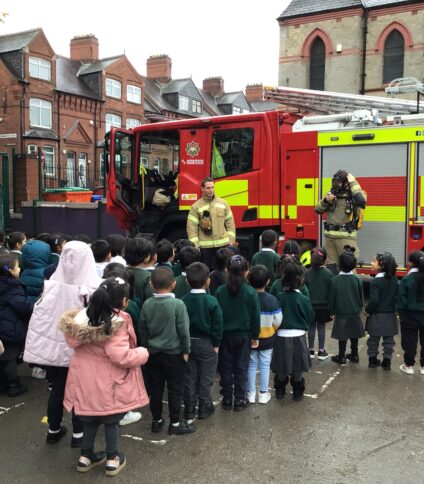

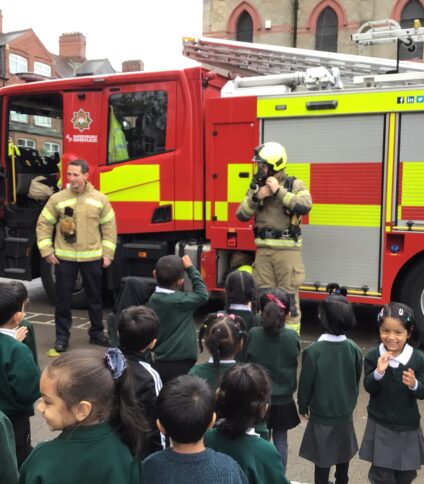

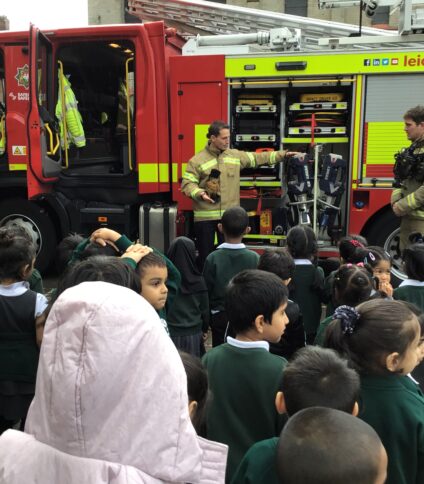

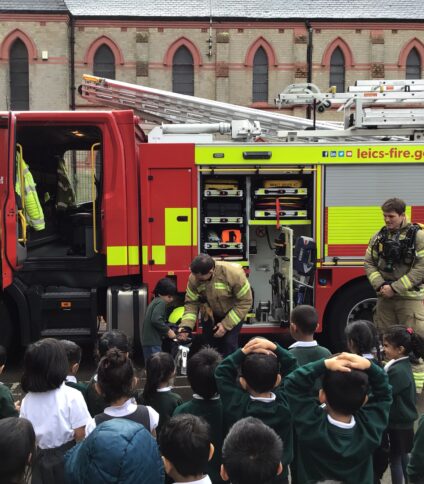

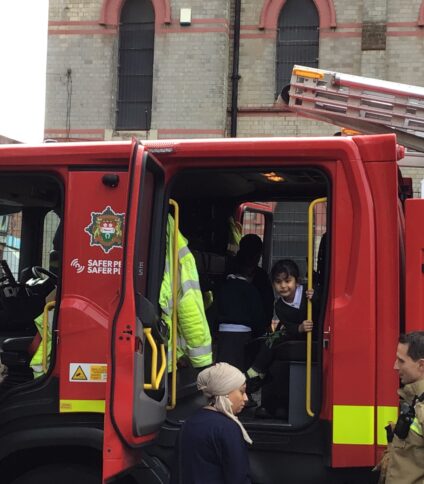

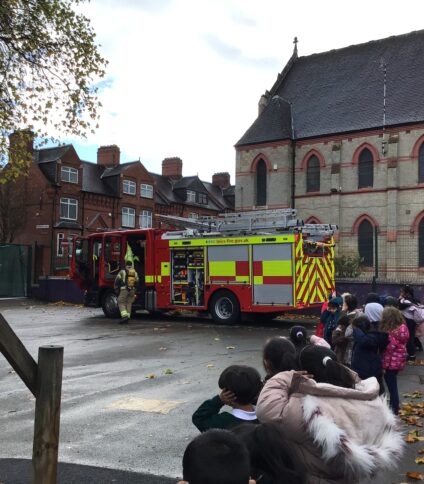



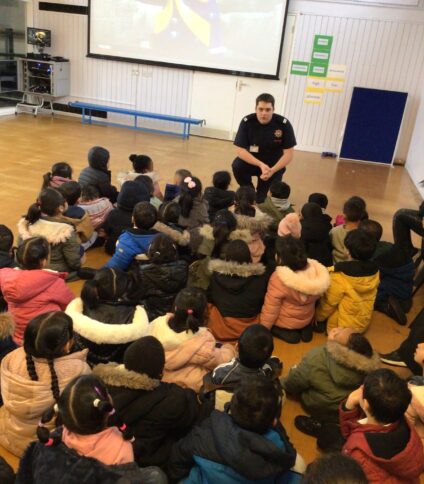

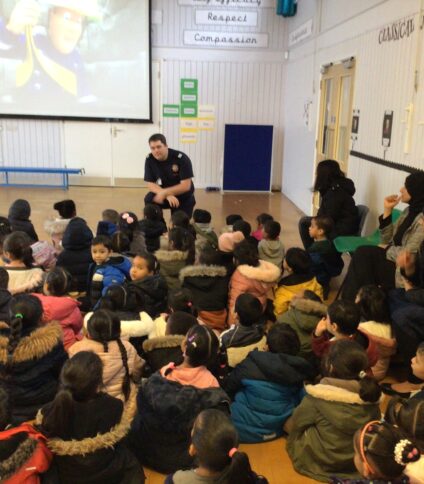

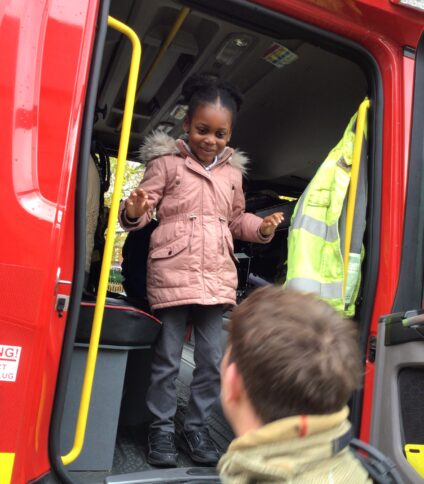

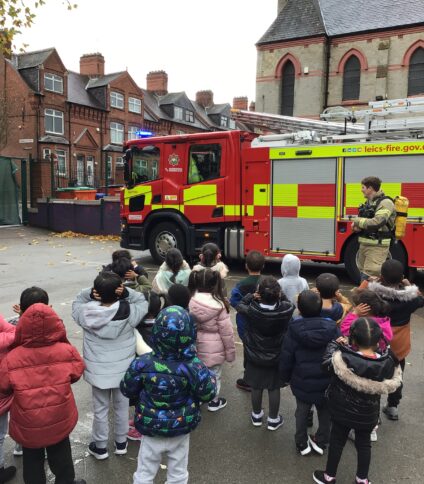

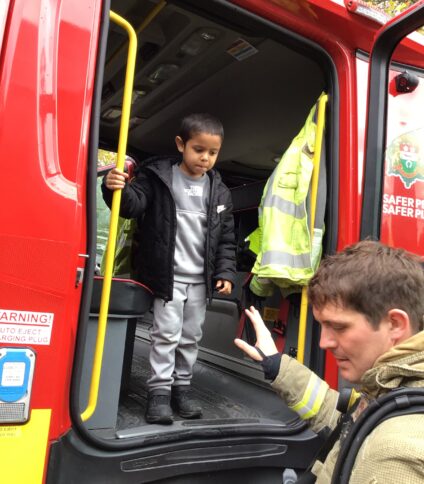

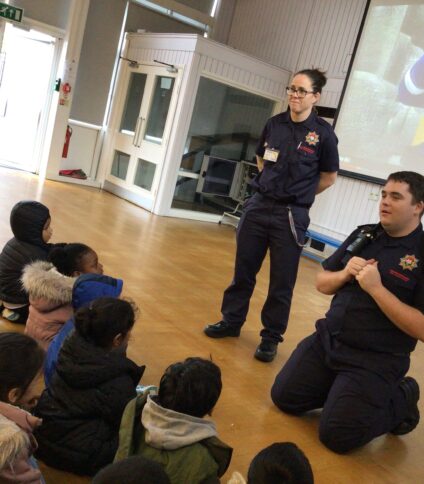

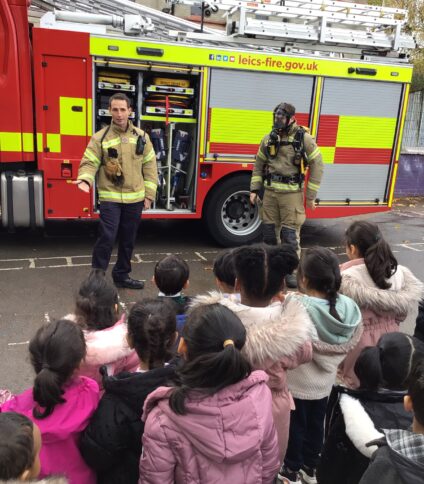

Stars Nursery children have been inspired by the recent fire fighters visit and have been role playing fire fighters. They have also been making models of fire engines.
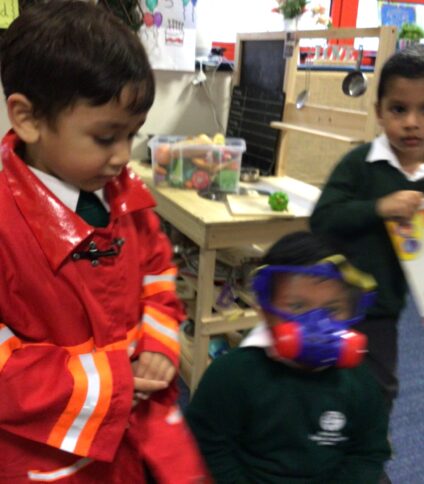

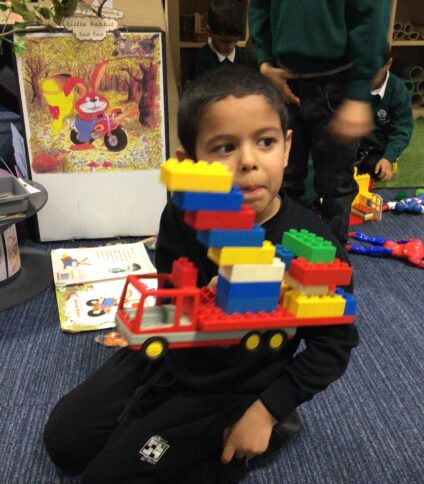

Doctors and Nurses
Children in stars were role playing being nurses and doctors by using their own experience to help develop their story lines.
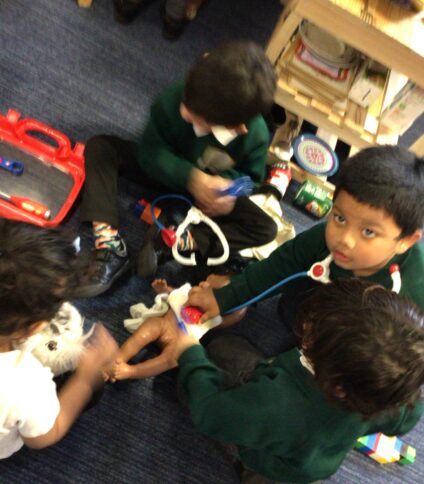

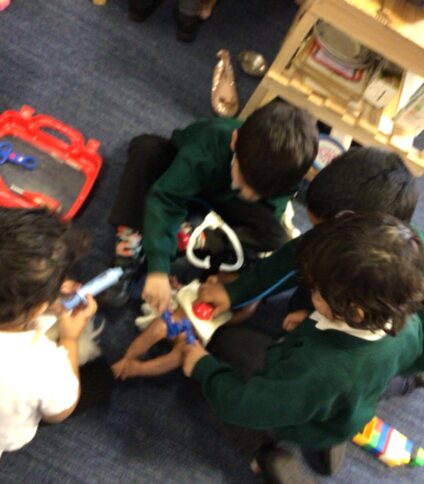

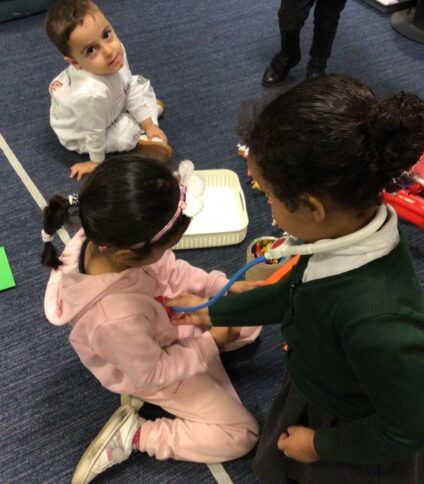

Timelines
In year 1, we have started to learn about timelines in history. As a class, we discussed our day at school and put the sequence of the day into chronological order from when we come into school in the morning to home time. We made a human timeline to show this.
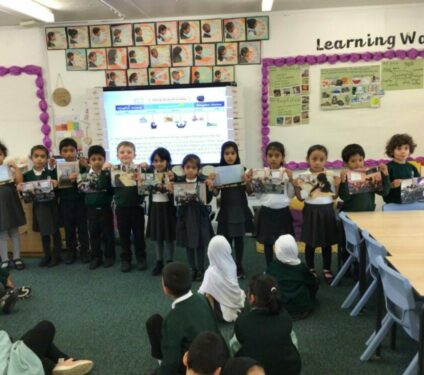

Timelines
Year 2’s have spent the Autumn term learning about Timelines! We started off by assembling the timeline from the year 1400.
We looked at important historiacal events that had taken place such as when the Queen was born and when she was coronated. We also looked at the when famous artists were born and when the first man landed on the moon! These events were all placed on a timeline.
Recent events, which we hope will remain in our children’s memories, have been added to the timelines such as when Liz Truss and Rishi Sunak becoming the Prime Minister as well as the funeral of our beloved Queen.
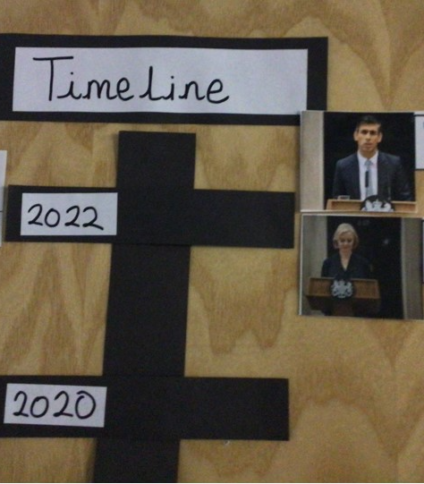

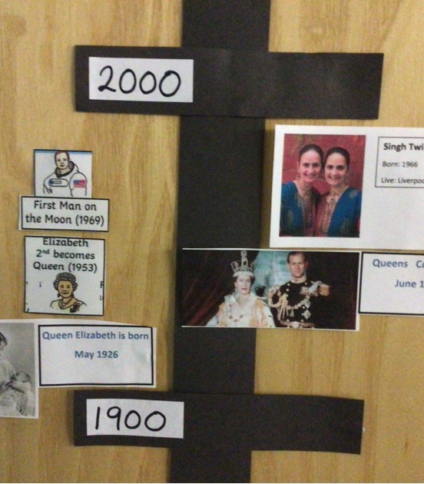

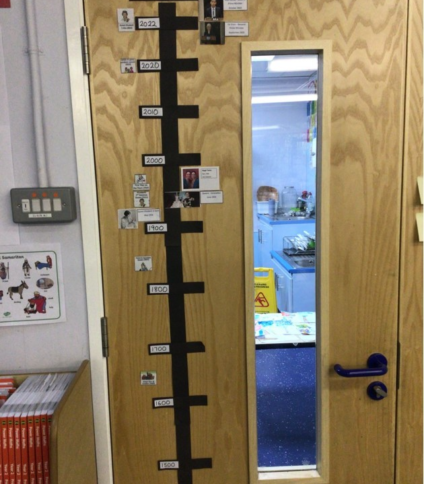

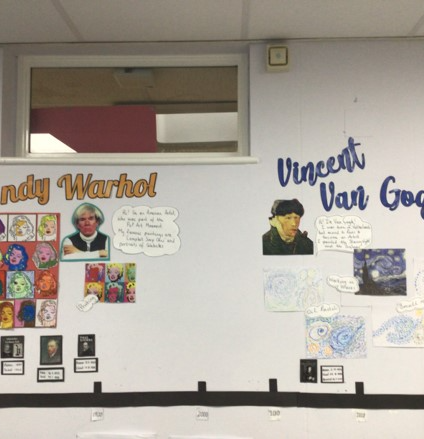

In Class Learning - 2021-2022
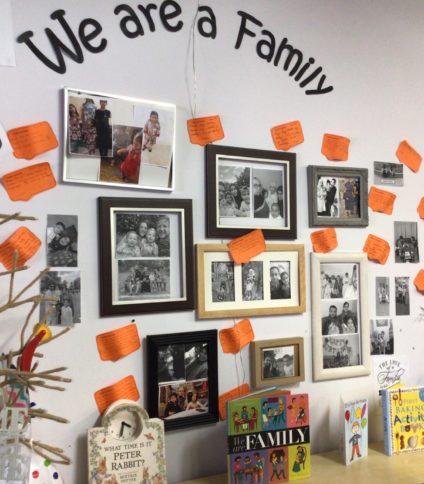

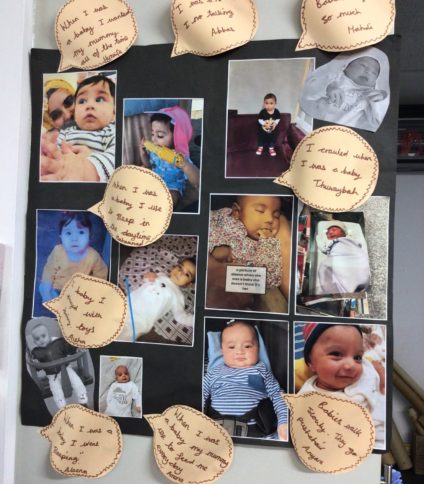

Nursing
Children in Reception have been learning about nursing and how it has changed from a long time ago. Children learn about a significant nurse a long time ago, Mary Secole. They looked at similarities and differences. The children were inspired to role play nursing and relate it to their own experiences.
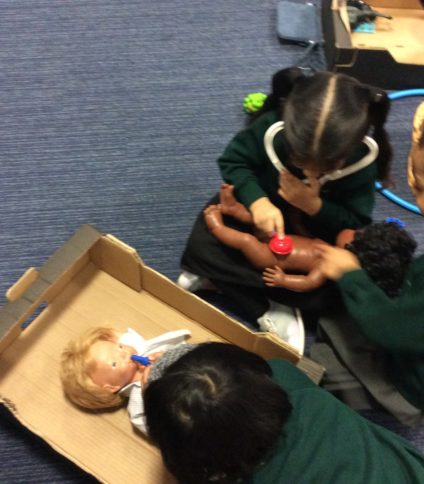

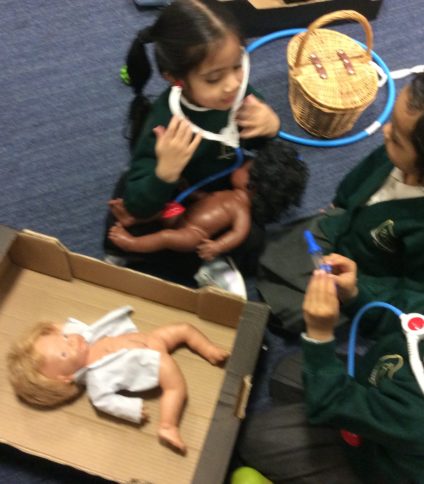

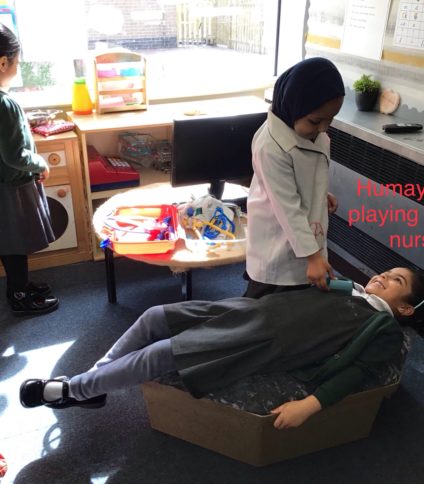

Fire Fighters
Children in Reception learnt about fire fighters and looked at how firefighters have changed over time. They compared fire fighters from a long time ago to fire fighters today. The children enjoyed a visit from Leicestershire Fire and rescue Service. Children got the chance to explore the equipment fire fighters used and try some lifesaving skills.
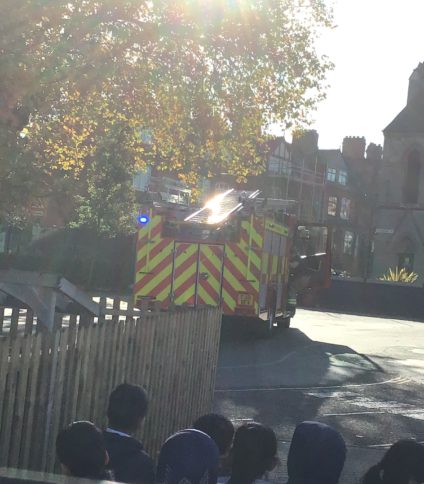

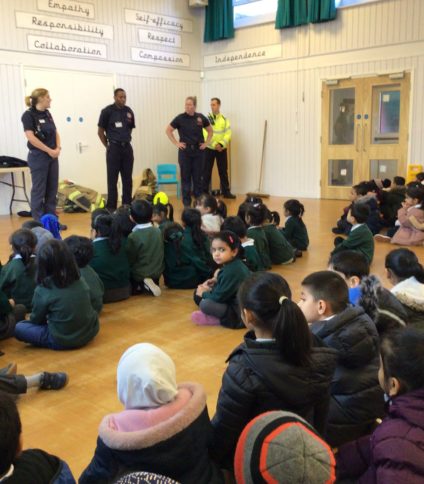

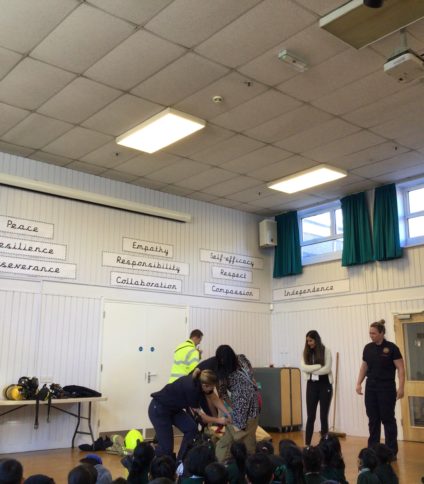

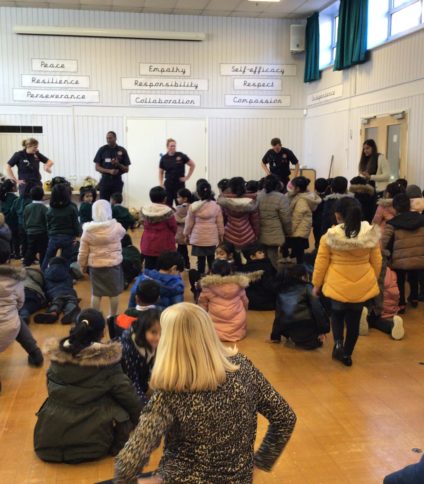

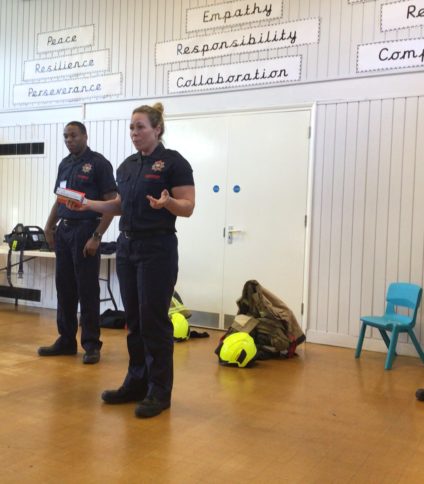

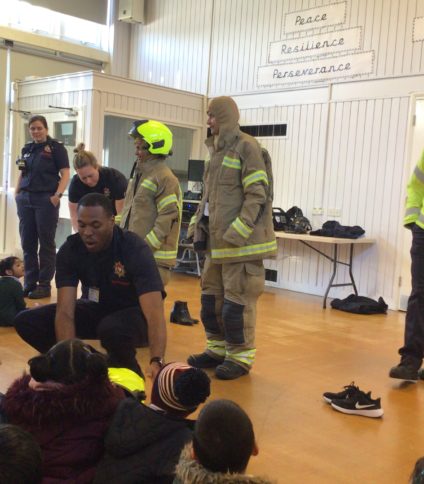

Chronology
The children made a physical timeline to help consolidate the order of events.
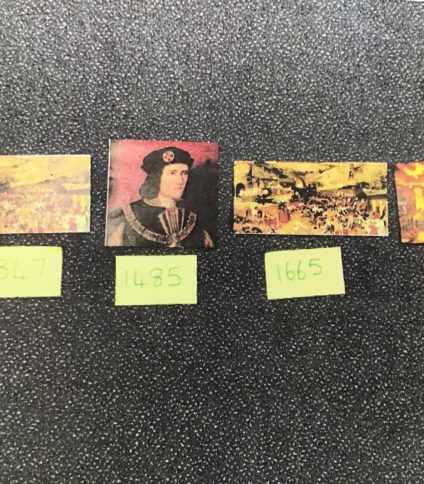

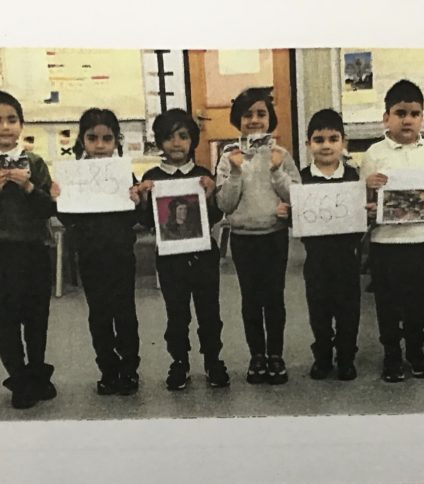

Chronology
The children learnt how the Black Death fit into a chronological framework, the impact it had on society and it’s sources of evidence.
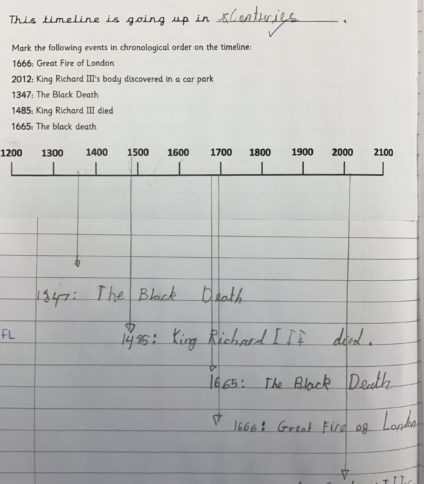

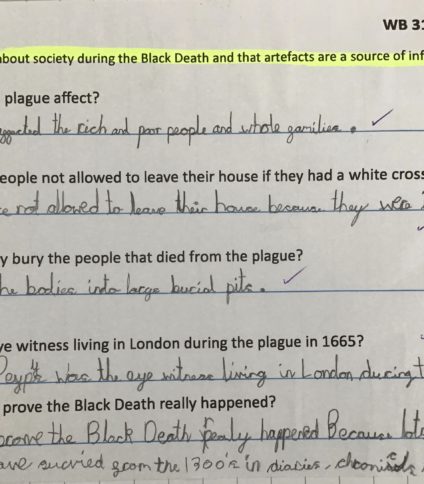

Significant National Event
Through the great fire of London the children learnt about a significant national event and the impact it had on the materials buildings were made from after the event. They also learnt about the artefacts used as sources of evidence that the fire really took place.
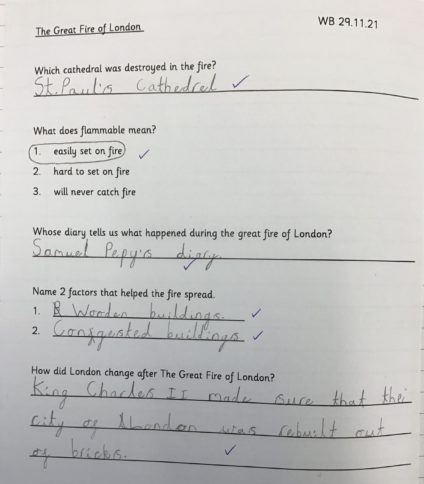

King Richard III
Great Fire of London
The Black Death
Marie Curie
Tim Berners Lee
Queen Elizabeth II
Queen Victoria
Moon Landing
Guy Fawkes
King Richard III Visitors Centre
4A St Martins, Leicester LE1 5DB
The Monument of the Great Fire of London
Fish St Hill, Bridge, London EC3R 8AH
Museum of London
150 London Wall, Barbican, London EC2Y 5HNAbbey Pumping Station Museum of Science and Technology
Corporation Rd, Leicester LE4 5PX
Buckingham Palace
Westminster, London SW1A 1AA
Kensington Palace
Kensington Gardens, Kensington, London W8 4PX
The National Space Centre
Exploration Dr, Leicester LE4 5NS
A Bonfire Celebration
Abbey Park – November
Stonehurst Farm – transport museum
Bond Ln, Mountsorrel, Loughborough LE12 7AA
- The Children’s Book of Richard III by Rosalind Adam
- The Great Fire of London by Susanna Davidson
- The Black Death by Rob Lloyd Jones
- Marie Curie: The Woman Who Changed the Course of Science by Philip Steele
- Tim Bereners Lee by Claudia Martin
- Becoming Queen Elizabeth by Gillian Clements
- The Little Queen: The Amazing Story Of Queen Victoria by Stewart Ross
- Great Events: The First Moon Landing by Gillian Clements
